It's my distinct pleasure to present the work of Randy Godwin, author and an all-around fine Southern gentleman's second guest offering here on Once Upon a History. You can find more of Randy's writings on his link above.
Hope you enjoy it as much as I did the first time around, and do remember friends Randy's many other subjects he writes about on his site include helping literally thousands of folks on questions concerning their camper equipment, pool vacs, and well, things like that.
I do believe you'll agree Randy is unique with his style of writing and the stories he chooses to employ it on.
Until we meet again my friends.
Hope you enjoy it as much as I did the first time around, and do remember friends Randy's many other subjects he writes about on his site include helping literally thousands of folks on questions concerning their camper equipment, pool vacs, and well, things like that.
I do believe you'll agree Randy is unique with his style of writing and the stories he chooses to employ it on.
Until we meet again my friends.
Randy Godwin's Aftermath of Glory
| My arms are so weak I can hardly lift them from my sides as I lie down on an old cot for a few minutes after hours of butchering my fellow human beings. Common men they were and are, for the most part. Ordinary dirt farmer’s sons who vowed to fight for the honor of their cherished homeland against the godless Yankees threatening their very way of life. Yeah, they bought it, as did most of us. Now we are paying the price of loyalty and trust, innocence, chivalry, and honor, all fruitless dreams as we found out much too late. | Palisades and chevaux-de-frise in front of the Potter House, Atlanta, Georgia, 1864. Photographed by George N. Barnard. |
My name is Jacob Slade-- Dr. Jacob Slade, if you care for professional titles--but you would never consider many of the procedures I’d been forced to follow lately as professional medical practices. I'm truly sorry for this, as I do the best I can with what I have.
My sixteen year old aide--a tow headed, loyal, and rather intelligent boy--has fallen immediately asleep, still holding a severed arm he intended to discard before instant weariness changed his mind. He even has blood in his hair.
My sixteen year old aide--a tow headed, loyal, and rather intelligent boy--has fallen immediately asleep, still holding a severed arm he intended to discard before instant weariness changed his mind. He even has blood in his hair.
Their blood - our sweat and tears ...
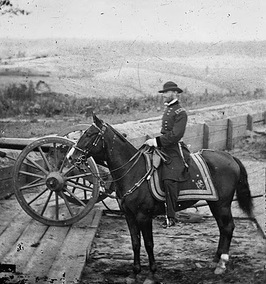 Gen. William Tecumseh Sherman
Gen. William Tecumseh Sherman Damn that Frenchman, Claude Minie!
Yes, he had invented an easier way to load a rifle with his Minie ball, but the low velocity bullets would simply flatten out on impact, shattering any bones they hit instead of going though and leaving a clean wound. Seldom were there bones to set in this war; amputations of entire limbs being the rule instead of the
exception.
Having nothing but raw moonshine to use as an antiseptic in place of medicinal alcohol, I can't remember if I drank more than I applied to the wounds of our poor boys in gray. Great beads of sweat rolled off my face as I sawed through bone and tendon, dropping down into open wounds along with both mine and the patient’s tears.
A nightmare from the depths of Hades some had described it. But it was much worse than that. I still awaken nights, soaking wet with the same sweat which blurred my eyes during that awful time. I can still smell the coppery odor of fresh blood when I wake from these nightmares. I can still hear the cries of those I mangled with care. I still can.
Yes, he had invented an easier way to load a rifle with his Minie ball, but the low velocity bullets would simply flatten out on impact, shattering any bones they hit instead of going though and leaving a clean wound. Seldom were there bones to set in this war; amputations of entire limbs being the rule instead of the
exception.
Having nothing but raw moonshine to use as an antiseptic in place of medicinal alcohol, I can't remember if I drank more than I applied to the wounds of our poor boys in gray. Great beads of sweat rolled off my face as I sawed through bone and tendon, dropping down into open wounds along with both mine and the patient’s tears.
A nightmare from the depths of Hades some had described it. But it was much worse than that. I still awaken nights, soaking wet with the same sweat which blurred my eyes during that awful time. I can still smell the coppery odor of fresh blood when I wake from these nightmares. I can still hear the cries of those I mangled with care. I still can.
Return to the living ...
We were holed up just outside of Atlanta in an old farmhouse. The fighting nearby had been intense for quite a while as the boys in gray tried to slow down the inevitable surrender of the city. Finally, most of the rebels retreated with the noise of explosions and cannon firing diminishing along with their ranks.
We had finally patched up the remaining wounded, covering up the bodies of those we could do nothing for. Abel--my young aide--had finally awakened and quickly relieved himself of the cadaverous appendage he'd found himself still gripping. “That was a hell of a long day, wasn’t it Doc?” he observed.
It was amazing how quickly Abel had rebounded after his short slumber. I’d forgotten the resilience of youth long ago and wondered if I indeed had ever possessed such wonderful abilities of recuperation. “Too long, Abel," I replied. “We can’t last much longer taking on such a load of casualties. At least I cannot!"
"Here, let’s go over to the old store and see if we can scrounge up something to eat. You’d think I wouldn’t be hungry after all of the blood and guts I’ve seen today. A man’s got to eat though, no matter what his eyes remember.”
We had finally patched up the remaining wounded, covering up the bodies of those we could do nothing for. Abel--my young aide--had finally awakened and quickly relieved himself of the cadaverous appendage he'd found himself still gripping. “That was a hell of a long day, wasn’t it Doc?” he observed.
It was amazing how quickly Abel had rebounded after his short slumber. I’d forgotten the resilience of youth long ago and wondered if I indeed had ever possessed such wonderful abilities of recuperation. “Too long, Abel," I replied. “We can’t last much longer taking on such a load of casualties. At least I cannot!"
"Here, let’s go over to the old store and see if we can scrounge up something to eat. You’d think I wouldn’t be hungry after all of the blood and guts I’ve seen today. A man’s got to eat though, no matter what his eyes remember.”
Civilians of Atlanta, Georgia scramble to board the last train to leave under the mandatory evacuation order given by General William T. Sherman. Many wagons and belongings had to be abandoned. Photo taken September 1864, and published in 1911.
Terminus lights in the sky ...
It was quiet now on the outskirts of Atlanta, but in the distance northward the sky was ablaze as old Terminus was being cremated by the invading hordes of blue clad warriors. Many of them couldn't even speak English enough to ask for a drink of water they were so new to America.
There was no honor in this stupid war, no honor at all. But time to quit thinking about it now. A man has to think about pleasant things to be able to abide the horrible. I truly believe it’s a necessary survival instinct. I truly do.
Our boys had pulled out earlier and the wounded - those who had survived my surgical deficiencies, that is - were taken along with the Rebs in old farm wagons or carts. Abel and I would have to leave pretty soon also if we wanted stay out of the invader's hands. But not just yet.
The orange glow from the burning Atlanta skyline was so bright we needed no lantern to see our way down to the old Jew store. I rapped on the door until Solly Cohen peeked back at me from behind the drawn shade. His look of concern changed just as suddenly to a smile of relief when he recognized my face.
There was no honor in this stupid war, no honor at all. But time to quit thinking about it now. A man has to think about pleasant things to be able to abide the horrible. I truly believe it’s a necessary survival instinct. I truly do.
Our boys had pulled out earlier and the wounded - those who had survived my surgical deficiencies, that is - were taken along with the Rebs in old farm wagons or carts. Abel and I would have to leave pretty soon also if we wanted stay out of the invader's hands. But not just yet.
The orange glow from the burning Atlanta skyline was so bright we needed no lantern to see our way down to the old Jew store. I rapped on the door until Solly Cohen peeked back at me from behind the drawn shade. His look of concern changed just as suddenly to a smile of relief when he recognized my face.
General Sherman's mandatory evacuation order in September 1864 led to this photograph of the last train leaving Atlanta. With overloaded cars, it will not have enough room for civilians to bring all of their belongings which can be seen littered beside the tracks beside the wagons they leave behind. Photo published in 1911, taken in 1864.
Preparing to travel south ...
“Oh Doc, I was afraid it was the Yankees already and we’re not packed to go yet!” Solly gasped. “Here now, you're almost falling down with weariness! Sit down and let me get you a drink!" At that moment I could feel all of my 57 years, feel them individually it seemed.
“Bring the bottle, Solly,” I said. “May as well drink all of it. It’ll just get broke anyhow when we hit them bumpy roads outside of Macon.”
Solly brought the whiskey bottle while his wife Ruth brought in a tray with two bowls of steaming stew and bread to sop the gravy with. The food was southern kosher I suppose, but at any rate, Ruth was a good cook. "Eat,” she said. The lady didn’t talk much either. Yes, Solly was a lucky man.
He was also my best friend in the world. We would be traveling in Solly’s large sales wagon. It took four horses to pull it, but we would travel in style. Solly had his entire life savings in jewelry in the enclosed quarters. He and Ruth were used to traveling around the country in the regular course of his business. But this wasn’t regular business as we all realized now.
“Bring the bottle, Solly,” I said. “May as well drink all of it. It’ll just get broke anyhow when we hit them bumpy roads outside of Macon.”
Solly brought the whiskey bottle while his wife Ruth brought in a tray with two bowls of steaming stew and bread to sop the gravy with. The food was southern kosher I suppose, but at any rate, Ruth was a good cook. "Eat,” she said. The lady didn’t talk much either. Yes, Solly was a lucky man.
He was also my best friend in the world. We would be traveling in Solly’s large sales wagon. It took four horses to pull it, but we would travel in style. Solly had his entire life savings in jewelry in the enclosed quarters. He and Ruth were used to traveling around the country in the regular course of his business. But this wasn’t regular business as we all realized now.
Atlanta, Georgia shortly after the end of the American Civil War showing the city's railroad roundhouse in ruins. Albumen print. Photo taken in 1866. Photo available in U.S. Library of Congress.
Different similarities ...
Strange how such different souls can find kinship in the worst of times, but then, isn't it often that way? We either find differences to hate one another with, or differences to remind us of our similarities. I suppose it’s all the same, just that we can’t often recognize the sameness for what it is. But me and Solly, well, we hit it off from the very first.
Growing up in the very deepest part of the south, I had never been around anyone from anywhere but southern Georgia. Other than the slaves we owned to run our plantation, everyone else was about the same. I never thought I’d see the day when I’d cozy up to a Jew, especially after hearing all about them from the preacher at the Clear Springs Baptist Church.
“The Jews killed Jesus,” Brother Morgan would shout from the pulpit. “They turned on their own and let the Romans nail him up on that ol' rugged cross to die for our sins”. He had said this many times during the long Sunday mornings I had sat through his unchanging sermons. It’s a wonder I hadn’t socked Solly in the mouth the first time he revealed his Jewishness to me."
Growing up in the very deepest part of the south, I had never been around anyone from anywhere but southern Georgia. Other than the slaves we owned to run our plantation, everyone else was about the same. I never thought I’d see the day when I’d cozy up to a Jew, especially after hearing all about them from the preacher at the Clear Springs Baptist Church.
“The Jews killed Jesus,” Brother Morgan would shout from the pulpit. “They turned on their own and let the Romans nail him up on that ol' rugged cross to die for our sins”. He had said this many times during the long Sunday mornings I had sat through his unchanging sermons. It’s a wonder I hadn’t socked Solly in the mouth the first time he revealed his Jewishness to me."
Potter's House in Atlanta housed Confederate sharpshooters until Union artillery made a specific target of it. Published in 1911. Photo taken in 1864.
Friend Solly ...
I had met him during my college days while studying medicine in Atlanta. Solly was merely trying to get through his education so he could be a teacher of history in some school up north. But instead, I married his sister.
Yes, that’s right, Solly became my brother-in-law. I’d met his sister after he'd invited me to go home with him one weekend instead of taking the train for the 200 mile trip home to Clear Springs.
Sarah was more than beautiful. I had never before been so affected by any southern belle--and they were more than a few who affected me--like Sarah did. Her eyes were wonderfully dark, seemingly able to look into my very soul. I was instantly, hopelessly, entranced by them. We were married just six months after having met.
I had to promise to follow her faith, the same as if I had refuted my own. I had no problem doing so, not with those eyes. There are few things gods have no sway over in this world, true love being one of them.
Yes, that’s right, Solly became my brother-in-law. I’d met his sister after he'd invited me to go home with him one weekend instead of taking the train for the 200 mile trip home to Clear Springs.
Sarah was more than beautiful. I had never before been so affected by any southern belle--and they were more than a few who affected me--like Sarah did. Her eyes were wonderfully dark, seemingly able to look into my very soul. I was instantly, hopelessly, entranced by them. We were married just six months after having met.
I had to promise to follow her faith, the same as if I had refuted my own. I had no problem doing so, not with those eyes. There are few things gods have no sway over in this world, true love being one of them.
Ruins of Atlanta depot after burning by Gen. Sherman's troops, 1864. Published Nov. 9, 2011. Photo via Wikipedia.
Mourning for lovers ...
We were gloriously blissful in our joining and loved and lived as best we knew how. I finished my medical training and bought a new home, right in the middle of Atlanta. But happiness is sometimes short lived when it is so clear and easy.
Sarah died giving birth to our son after we had been married only a year. Even the bottle was no companion for me afterwards. Neither whiskey, nor the laudanum from my medical bag, could help dim the past. But they also had little effect on my memories. I cannot decide if this is good or bad. Not really.
I never fell in love again. Sarah was the perfection I had sought so long in my life, and once found, isn't worthy of repetition. I would not dare to look again for the elusive happiness I had once tasted. No mortal would dare.
So, here we were. Atlanta burning all around us and nowhere to go but south. I know my folks haven't forgiven my easy betrayal of my religion for the Hebrew temptress. No, they never called her that, at least not to my knowledge. But it was in their minds, nonetheless.
I don’t know how we will be received back home, especially Solly and Ruth. But I will be there to show the others they are real people, not merely murderers of Jesus in their old book of judgment.
Sarah died giving birth to our son after we had been married only a year. Even the bottle was no companion for me afterwards. Neither whiskey, nor the laudanum from my medical bag, could help dim the past. But they also had little effect on my memories. I cannot decide if this is good or bad. Not really.
I never fell in love again. Sarah was the perfection I had sought so long in my life, and once found, isn't worthy of repetition. I would not dare to look again for the elusive happiness I had once tasted. No mortal would dare.
So, here we were. Atlanta burning all around us and nowhere to go but south. I know my folks haven't forgiven my easy betrayal of my religion for the Hebrew temptress. No, they never called her that, at least not to my knowledge. But it was in their minds, nonetheless.
I don’t know how we will be received back home, especially Solly and Ruth. But I will be there to show the others they are real people, not merely murderers of Jesus in their old book of judgment.
Keeping the gentlemen's oath ...
Abel would also be coming along with us because he had nowhere else to go. His folks were both killed earlier in the war near the Tennessee/Georgia border. Abel volunteered to help me tend the wounded in a very bad battle near the area, so I can only do the same for him and repay his loyalty in kind. This seems to be another unspoken oath among ourselves. Oaths are often such, at least the best one’s are. But this is merely my humble opinion.
But I don’t really care at this point about the niceties of going home. Solly is my brother and his wife my kin also. They will go home with me, back to what’s left of my legacy among those who may often look askance in my direction.
I won’t worry about it now though, mainly because Sarah would not have approved. But she also knew I would never fail her family. After all, I gave her my oath as a southern gentleman.
But I don’t really care at this point about the niceties of going home. Solly is my brother and his wife my kin also. They will go home with me, back to what’s left of my legacy among those who may often look askance in my direction.
I won’t worry about it now though, mainly because Sarah would not have approved. But she also knew I would never fail her family. After all, I gave her my oath as a southern gentleman.
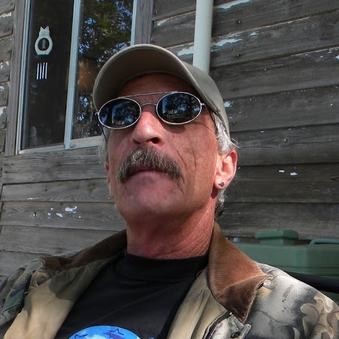
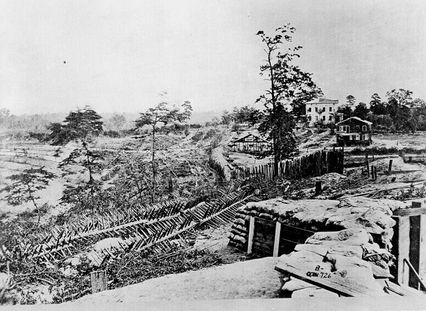
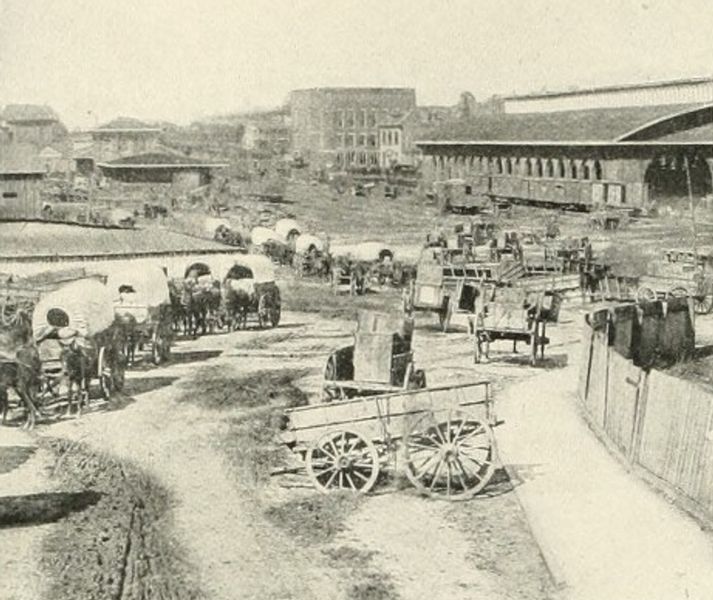
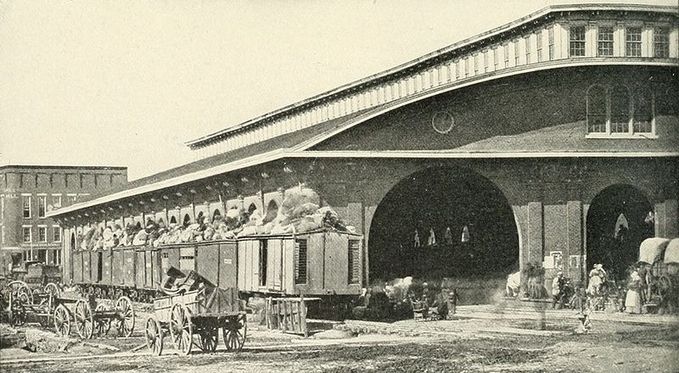
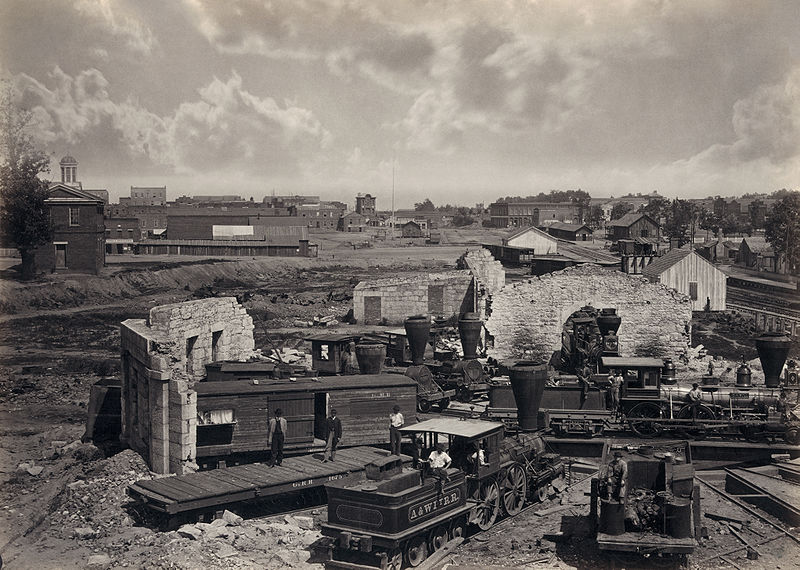
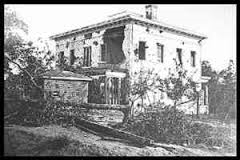
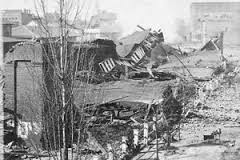
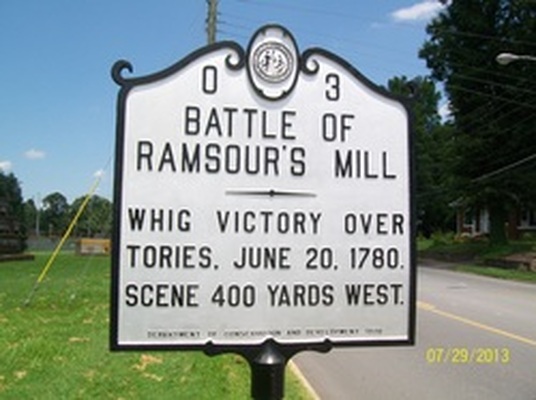

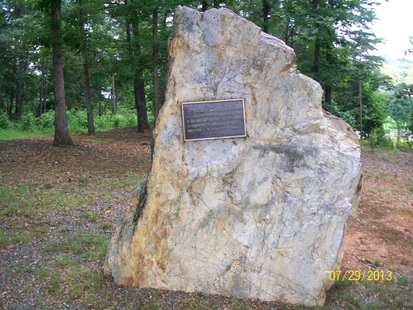
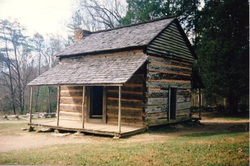
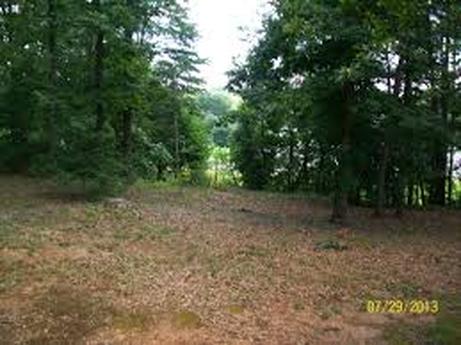
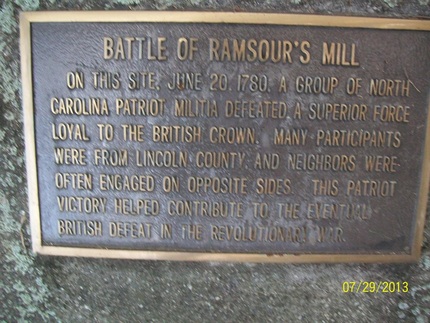
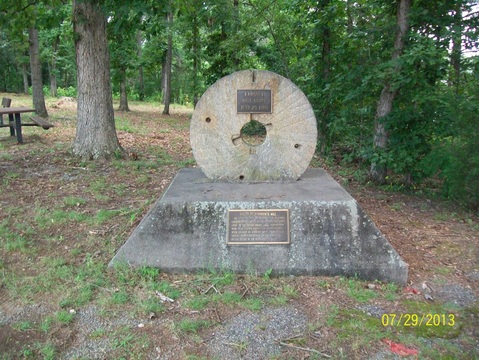
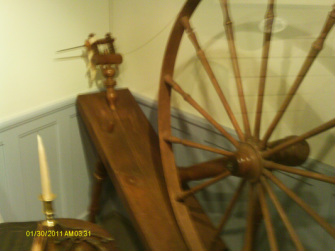
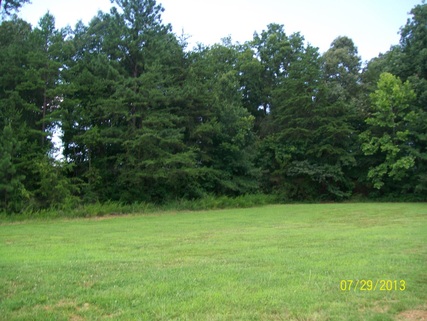
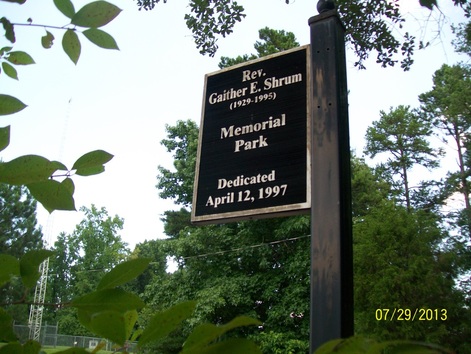
 RSS Feed
RSS Feed
